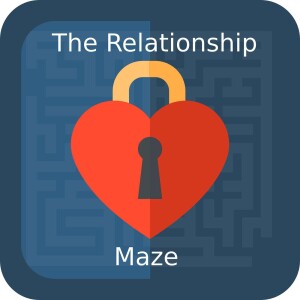
Why You Choose Your Partner- The Unconscious Forces That Influence Attraction
 2022-10-31
2022-10-31
Send us a text
You may find that you often chose partners that are not necessarily the best choice for you. Why is it, for example that children of alcoholics or children of abusive parents often find themselves in similar relationships as adults? The child of an alcoholic find a partner who drinks too much, the child of emotionally unavailable parents choses a partner who is not emotionally present, children of narcissists make sure they find a narcissistic partner.
As children we learn everything there is to learn about relationships from our primary care takers and other influential people. Early experiences of love, no matter how loving the parents, always comes with some aspects of pain or frustration: for example a sense of not being quite good enough, not getting the attention you crave, having to care for a vulnerable or depressed parent or mediating between quarrelling parents. In adulthood, we are replicating familiar relational patterns with our partners. We often turn down partners who don't display those qualities that we associate with love, however dysfunctional they may be. The qualities may be 'positive' or 'negative'. Above all, they need to be familiar to us and offer us the possibility of a reparative experience.
Our unconscious search for the familiar means that we are often drawn to partners who are similar enough to our primary care takers. Seemingly they offer us the potential of re-creating and healing old childhood dramas. On the other hand, these objects of our desires are also dissimilar enough to offer us the potential for a more healing experience.
Frequently, a nice' partner who doesn't offer an adverse experience is often seen as a less valuable partner: only a partner who is won over with hard work and eventually convinced that you are worthy is a worthy partner for you.
Understanding your relational template will help you not only to chose wisely when finding a partner, it will also help you to identify what your needs are and how you can address some of these needs yourself.
The Relationship Maze courses:
What is your argument style? Find out in our short quiz. You can find a link on our website: https://therelationshipmaze.com.
Struggling with a lot of conflict and arguments in your relationship? Learn about communicating effectively and addressing common relationship problems in our Stop Arguing, Start Loving mini course: https://therelationshipmaze.com/relationshipconflictvsl2.
Learn everything you always wanted to know about building and maintaining loving relat
Contact us for information about individual counselling/psychotherapy, couples therapy, clinical supervision or CPD training.
Tom's website
Angela's website
Struggling with a lot of conflict and arguments in your relationship? Learn about communicating effectively and addressing common relationship problems in our Stop Arguing, Start Loving mini course.
Learn everything you always wanted to know about building and maintaining loving relationships in our comprehensive course The Relationship Maze, starting with understanding yourself in relationships to understanding your partner and understanding what makes for a successful relationship. We look at common causes of relationship problems and offer solutions. Learn how to address relationship problems and questions without breaking up.
More Episodes
Create your
podcast in
minutes
- Full-featured podcast site
- Unlimited storage and bandwidth
- Comprehensive podcast stats
- Distribute to Apple Podcasts, Spotify, and more
- Make money with your podcast
It is Free
- Privacy Policy
- Cookie Policy
- Terms of Use
- Consent Preferences
- Copyright © 2015-2024 Podbean.com





